When it comes to preserving the freshness and quality of food, selecting the right sealing machine for food packaging is crucial. With an overwhelming variety of options available in the market, consumers and businesses alike often find it challenging to identify the most suitable model for their specific needs. This ultimate guide aims to simplify the decision-making process by providing a comprehensive comparison of different sealing machines tailored for food packaging. From automatic to manual machines, and various sealing technologies, each option presents unique features and benefits that cater to diverse packaging requirements. By analyzing key factors such as efficiency, ease of use, durability, and cost-effectiveness, this guide will empower you to make an informed choice that ensures optimal food preservation and enhances your packaging operations.

When it comes to food packaging, selecting the right sealing machine is crucial for maintaining product freshness and safety. There are several different types of sealing machines available in the market, each designed for specific applications. For instance, vacuum sealers remove air from packages to significantly prolong shelf life, with studies indicating that vacuum-sealed products can last up to 5 times longer than those stored in traditional packaging. This method is particularly favored in the meat and cheese industries, wherein the reduction of oxygen prevents spoilage and bacterial growth.

Another popular option is heat sealing machines, which use heat to bond materials together. These machines can efficiently seal various materials, including plastic films, aluminum foil, and polyethylene. According to a report by MarketsandMarkets, the global food sealing machine market is expected to grow from $4.5 billion in 2022 to $6.1 billion by 2027, reflecting the increasing demand for efficient food preservation methods. Furthermore, impulse sealers are ideal for short production runs, providing a cost-effective solution for small businesses seeking to package products without the need for large-scale machinery. Understanding each type of sealing machine helps businesses make informed decisions tailored to their specific packaging needs.
When selecting a sealing machine for food packaging, several key features should be meticulously considered to ensure optimal performance and efficiency. One of the most crucial aspects is the machine's sealing technology. According to industry reports, machines utilizing both heat sealing and impulse sealing methods are favored for their ability to create airtight seals, which significantly reduce the risk of spoilage and extend shelf life. Specifically, heat sealing provides robust seals ideal for high-volume operations, while impulse sealing is often more suitable for lower volumes but with higher flexibility in packaging types.
Another pivotal factor is the compatibility with various packaging materials. Modern sealing machines are designed to work with a range of materials, including polyethylene, polypropylene, and even more sophisticated laminates. Reports highlight that approximately 60% of food packaging failures arise from improper sealing due to material incompatibility. Therefore, investing in a machine that can efficiently handle diverse materials can mitigate wastage and ensure product integrity. Additionally, ease of use and maintenance plays a vital role in operational efficiency; machines that offer automated features and quick-change capabilities can greatly enhance workflow in packaging processes.
When it comes to food packaging, the choice between electric and manual sealing machines plays a crucial role in efficiency and effectiveness. Electric sealing machines offer speed and consistency, making them ideal for businesses that require high-volume packaging. They often come equipped with adjustable settings, allowing users to select the optimal sealing time and temperature based on specific materials. This can enhance the quality of the seal, ensuring the food remains fresh and free from contamination.
On the other hand, manual sealing machines are typically more affordable and easier to operate, making them a great option for small businesses and home users. Although they require a bit more time and effort to seal packages, manual machines allow for greater control over the sealing process, which can be beneficial for those packaging a variety of items.
**Tip:** When choosing between the two, consider the volume of packaging you will be doing. For smaller batches, a manual machine might suffice, but if you're scaling up, investing in an electric sealer could save both time and effort.
**Tip:** Always evaluate the types of materials you plan to seal. Some manual machines may not handle thicker materials as well as electric ones, so understanding your specific needs will guide your decision effectively.

When selecting a sealing machine for food packaging, understanding the importance of size and capacity is crucial. The right size will ensure that the machine fits seamlessly into your workspace, while the capacity determines how much product it can handle at a time. Assess your production volume and the types of food you plan to package—whether they are small batches of artisanal products or large quantities of pre-packaged meals. This evaluation will guide you toward a machine that not only fits your spatial constraints but also meets your throughput requirements.
Another factor to consider is the type of food being sealed. Different foods may require specific sealing techniques or packages that influence the sizing decision. For example, liquids and solids have distinct sealing needs, and machines designed for each type will vary in dimensions. Additionally, consider the flexibility of the machine regarding bag sizes; investing in a machine that can accommodate various bag sizes can enhance operational efficiency, allowing you to switch between different products without investing in multiple machines. Ultimately, aligning the machine's specifications with your operational needs will streamline your food packaging process and elevate your production capabilities.
| Type of Sealing Machine | Ideal Application | Size and Capacity | Price Range | Special Features |
|---|---|---|---|---|
| Vacuum Sealer | Meat, Vegetables, and Sous Vide | Small to Medium Size (up to 11 inches width) | $50 - $300 | Automatic moisture and vacuum detection |
| Impulse Sealer | Packaged Snacks and Bakery Items | Various (up to 24 inches width) | $30 - $200 | Adjustable timer for sealing |
| Chamber Vacuum Sealer | Commercial Food Packaging | Medium to Large (up to 16 inches width) | $500 - $2000 | Automatic vacuum and sealing cycle |
| Horizontal Band Sealer | Liquid and Granular Products | Large (up to 24 inches width) | $1000 - $4000 | High-speed continuous sealing |
| Sealing Machine with Nitrogen Flush | Sensitive Food Products | Medium to Large (varies) | $2000 - $5000 | Prevents oxidation for a longer shelf life |
Maintaining and caring for sealing machines is essential for ensuring their longevity and optimal performance in food packaging. Regular cleaning is the first step in this process. After each use, it is crucial to wipe down all surfaces with a damp cloth to remove any food residues or debris. For deeper maintenance, periodically inspect the sealing elements and heating bars for signs of wear or buildup, which can affect seal integrity. Using appropriate cleaning solutions recommended by the manufacturer will help maintain the machine components and prevent any damage that could impair functionality.
In addition to cleaning, proper storage is vital for prolonging the life of sealing machines. When not in use, they should be stored in a dry, cool environment away from direct sunlight to avoid any degradation of materials. Regularly checking for loose screws or parts can prevent larger issues down the line, ensuring that the machine operates smoothly when needed. By investing time in maintenance and care, users can maximize the efficiency and lifespan of their sealing machines, leading to better food preservation and reduced costs in the long run.
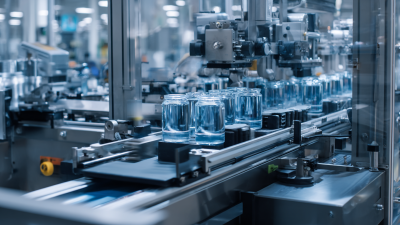
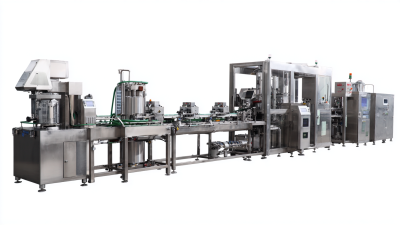

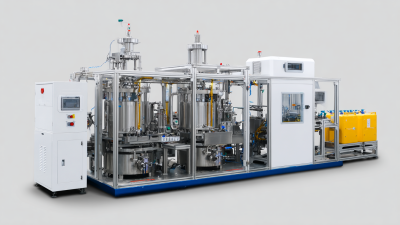
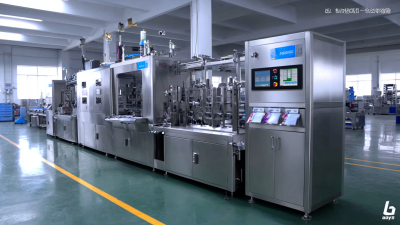
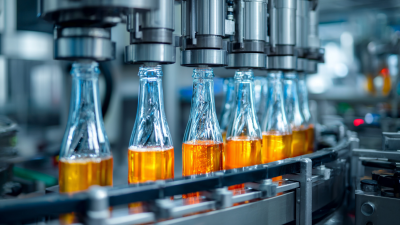
Accutek Packaging Equipment Companies, Inc. stands as one of the premier privately owned packaging machinery manufacturers in the United States.

Sign up for all the news about our latest arrivals